I have many timestamps (start, end) which define an interval and want to efficiently check if they overlap another single interval. If yes, compute overlap duration, otherwise return 0.
interval: 18:00 same day until 08:00 the next day.
start | end
2018-01-02 14:59:18.922|2018-01-02 14:59:38.804
2018-01-02 18:32:59.348|2018-01-02 20:30:41.192
2018-01-02 01:54:59.363|2018-01-02 01:54:59.363
2018-01-03 00:10:38.831|2018-01-03 00:11:53.103
I am unsure how to efficiently define the next day efficiently.
edit
LocalDate
has a method toInterval().overlaps(anotherInterval). I simply am unsure how to get fitting interval (18:00 - 08:00 next day) in a generic way, i.e. without manually reading the YYYMMDD and then creating a new object.
- a bit similar is Find if hours ranges overlap regardless of the date
edit 2
toInterval is only present for jodatime - not java.time / JSR-310. What would be a viable way to calculate overlap duration with java.time?
edit3
A solution with jodaTime:
val begin = new DateTime(new java.sql.Timestamp().getTime())
val stop = new DateTime(new java.sql.Timestamp().getTime())
val i1 = new Interval(begin, stop)
val start = new DateTime(begin.year.get , begin.monthOfYear.get, begin.dayOfMonth.get, startHour, 0, 0, 0);
val endIntermediate =stop.toDateTime.plusDays(1)
val end = new DateTime(endIntermediate.year.get , endIntermediate.monthOfYear.get, endIntermediate.dayOfMonth.get, endHour, 0, 0, 0);
val i2 = new Interval(start, end)
val overlap = i1.overlap(i2)
val overlapDurationOrNull = overlap.toDuration
seems to work, but still is clumsy.
